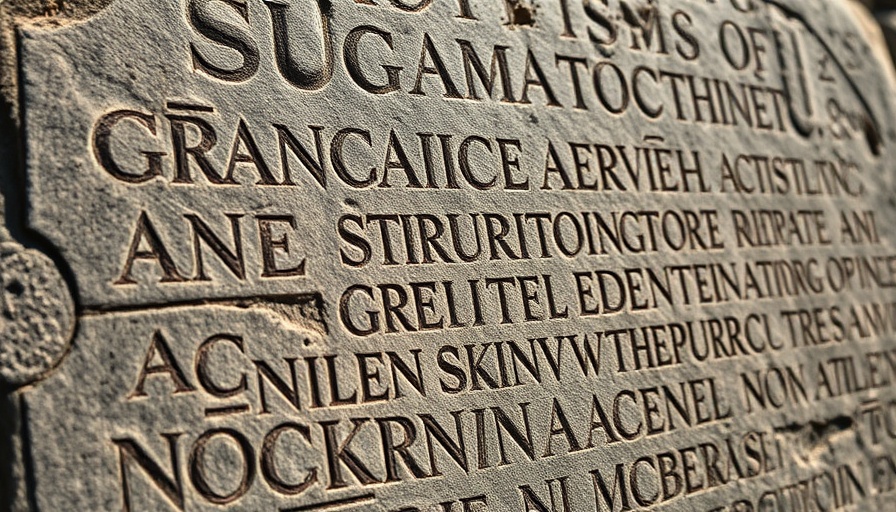
AI Revolutionizes Interpretation of Ancient Texts
In an unexpected blend of antiquity and technology, Google DeepMind is harnessing artificial intelligence to unravel the intricacies of ancient Roman history. The innovative AI model, named Aeneas, serves as a pioneering tool aimed at deciphering damaged and confusing inscriptions that have historically presented challenges for historians and epigraphists.
Transforming Historical Scholarship with Aeneas
Aeneas's capability to analyze vast databases encompassing millions of Latin inscriptions is unmatched. Previously, historians relied heavily on laborious manual searches within these databases or string-matching techniques, often limiting their focus to certain regions or periods due to the sheer volume of data. Aeneas, however, accelerates this process significantly—he can now identify parallels in inscriptions and propose contextual meanings within seconds, revolutionizing the field of epigraphy.
Unleashing Potential through Collaboration
Collaboration between historians and AI has proven fruitful; an instance includes the analysis of the “Res Gestae Divi Augusti,” a key text attributed to Emperor Augustus. Aeneas was able to produce a compelling range of possible dates for its authorship, illustrating the AI’s ability to contribute meaningful insights that have evaded experts for years. Such technological advancements not only enhance our understanding of history but also advocate for the integration of AI across various domains.
The Future of Historical Research and AI
The implications of Aeneas extend beyond historical research; they signal a future where AI assists across various sectors—from business analytics to archaeology. As organizations increasingly lean on AI for data interpretation, we are witnessing a transformation in how knowledge is constructed, validated, and understood.
Conclusion: Embrace the AI-Driven Insights
As we stand on the cusp of a technological renaissance with AI tools like Aeneas, it is crucial for business leaders and tech professionals to recognize the potential benefits and applications of such innovations. Whether enhancing historical comprehension or streamlining data processes in their own fields, the lessons gleaned from integrating AI into traditional frameworks are potent and inspiring. As you strategize for the future, consider how AI can not only illuminate the past but also reshape the context of your industry's narrative.
 Add Row
Add Row  Add
Add 










Write A Comment